OVER the years every government — whether democratic or dictatorial — has used the police for vested interests. In a coalition government the majority party often retains the interior and home ministries to exploit the police for political purposes.
The appointments, transfers and postings of officials from the rank of constable to the top of the hierarchy are politically motivated. The landlord-turned-politicians of rural areas get district police officers (DPO) or station house officers (SHO) of choice posted to boost their authority in the constituency. The criterion for the posting of police officers in urban centres appears to be party affiliation.
The late-night transfers of the IG Punjab, regional police officers (RPO) of Rawalpindi and Gujranwala, and other shuffling of police officers during this year's governor's rule in Punjab are also glaring examples of political involvement in the police. In violation of the rules and the principle of merit, political parties, especially in the 1980s and 1990s, recruited a large number of assistant sub inspectors (ASI) and deputy superintendents of police (DSP), who have by now reached senior ranks and are serving the cause of their benefactors.
Several DSPs serving as personal staff officers of chief ministers or having connections with politicians have been promoted to the rank of superintendent of police (SP) in blatant disregard of seniority and the prerequisites of promotions.
Corruption regrettably exists both in the police force's operational activities and the administrative system. Lower-level management jobs are sold or given away on a political basis. Lower-ranking subordinates are compelled to bribe the clerks in provincial police officer (PPO), RPO, deputy inspector general (DIG) and DPO offices to move a file from one table to another for promotions, reinstatement and collection of post-retirement benefits etc.
There are monthly amounts fixed for police stations payable to higher officials by SHOs, whose occupation remains extortion and bribery through allegedly allowing the open sale of prohibited drugs, arms and ammunition, the running of prostitution dens and other crimes of a violent and non-violent nature.
Budgets and funds for operating expenses are misappropriated without any fear of accountability. The overall budget of the Sindh police for 2009-10 is Rs23.69bn, out of which Rs19.5bn is allocated for the salary of its 66,022 personnel. The rest of the budget is for other operating expenses such as uniform, transport, secret service expenditures, investigation costs, etc.
Out of a total budget of Rs43.22bn for the Punjab police for over 180,700 personnel, Rs205.66m was allocated for communication, Rs64.32m for rented offices and residences and Rs3.36bn for travel and transportation. The budget for these and other heads is allegedly neither properly utilised nor audited, thus the fears of embezzlement. That is why we see defective mobile vans, crumbling buildings of police stations, charging the complainant for visiting the crime scene and investigation cost, as well as unkempt uniforms.
Intelligence-led policing is not given due importance by our police. In ideal law-enforcement agencies, there is a criminal intelligence analysis unit to analyse the information gathered to support intelligence, investigative and planning activities of the agency. It also helps check future crime through analysis of past and present criminal tendencies.
Because of having no integrated criminal intelligence unit the police borrow intelligence reports from the intelligence agencies. Such reports become second-hand information. Police officials argue that crime in Pakistan is under control. A senior police officer has stated that the recorded number of crimes in Pakistan is 0.5 million per year, whereas the UK's statistics were 4.5 million and the US's 11.1 million in 2008-09. It should be remembered that in the UK and US almost every crime is registered, whereas the police in Pakistan avoid registering FIRs. A complainant needs to bribe the thanedar sahib or apply political influence to lodge an FIR.
The standard of training is very low and incommensurate with the sophistication of criminals and the worsening security situation. Police officials who are found misfits in the practical field are deputed to training centres as instructors. On the other hand, the existing police training centres are found lacking in adequate facilities and required standards. Hardly any of the five police training schools in Punjab, three schools and two colleges in Sindh and three training schools in the NWFP have forensic labs. Only the Police Training College, Sihala, has a forensic sciences lab. That too lacks research facilities.
In today's world where information technology dominates nearly every aspect of our lives, the police have no integrated database of criminals. Thus the police find it hard to get the criminal history of a suspect who, for example, belongs to an area of Punjab and is arrested while committing crimes in Karachi.
There are flaws in the recruitment process. A person with a commerce academic background is recruited as a police officer. When specialisation has replaced orthodox recruitment standards in many fields and the subjects of criminology and criminal justice have been introduced, the prerequisite qualification for employment in the police at the ASI and assistant superintendent police levels should at least be a bachelor's degree in criminology and criminal justice.
The need to revamp the police structure has always been felt, but no government has made tangible efforts to make the police a service-oriented, honest and professional department. Gen Pervez Musharraf made a half-hearted attempt to reform the force by introducing the Police Order 2002 which, though it replaced the archaic Police Act 1861, has succumbed to political compromises and has been amended in several areas. The alterations in the Police Order 2002 suggest that legislation is not enough to deliver the goods. Political commitment, proper accountability, significant training, a viable infrastructure and equipment are all necessary to make the police force a professional organisation.















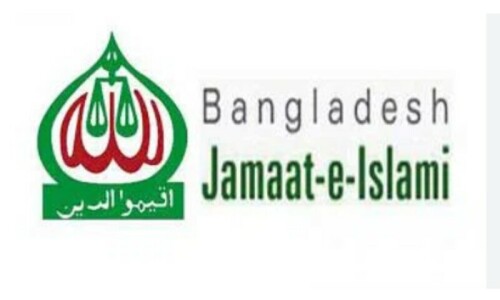
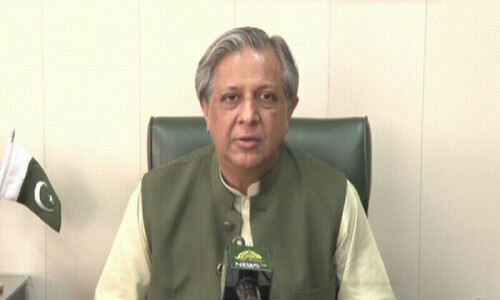
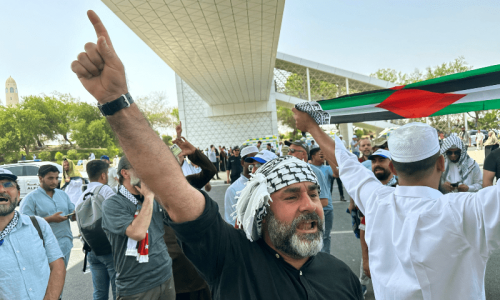














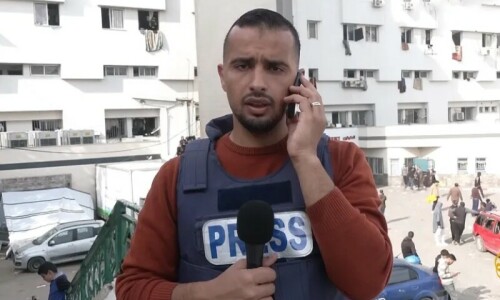

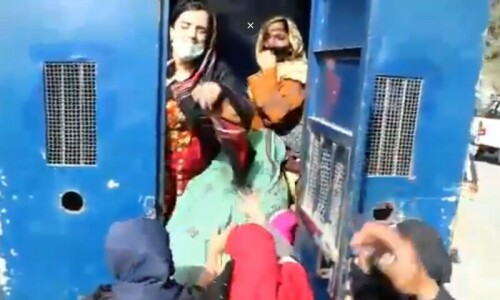










Dear visitor, the comments section is undergoing an overhaul and will return soon.